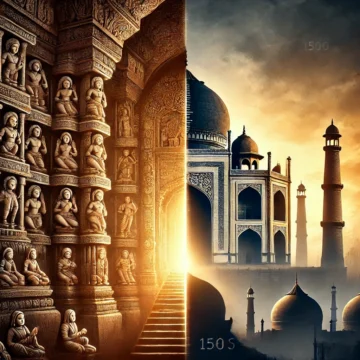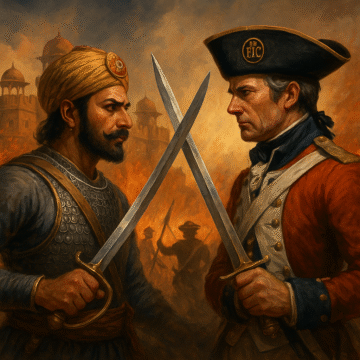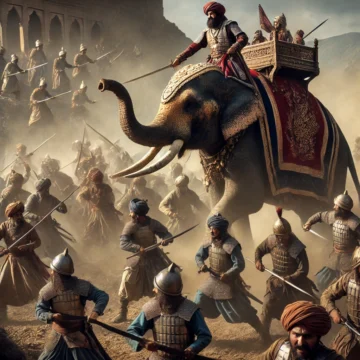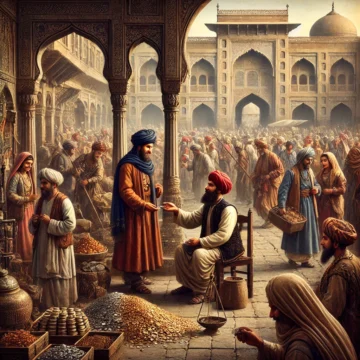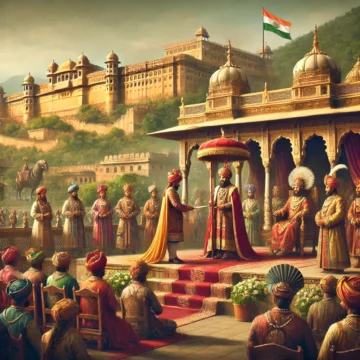This analysis examines Political Islam versus Sanatan Dharma through Mughal-era governance (1526–1800), testing claims of tolerance against historical evidence. By comparing Mughal rule over Hindu majorities with Hindu kingdoms governing Muslim minorities, the study reveals a persistent safety asymmetry rooted in doctrinal systems rather than individual rulers.
Tag: Mughal Empire
East India Company vs Maratha Empire
The clash between the East India Company vs Maratha Empire was not just a battle of arms but of minds. The Marathas embodied Hindu resurgence and resistance, while the British turned trade into conquest through strategic manipulation. This blog explores how valor met calculation, and how disunity turned sovereignty into subjugation.
Guru Tegh Bahadur: Legacy of a Martyr
Explore the profound legacy of Guru Tegh Bahadur, whose martyrdom in 1675 marked a pivotal moment in religious history. This blog delves into how his ultimate sacrifice influenced Sikh and Hindu communities, advocating for righteousness, religious freedom, and the enduring power of interfaith solidarity.
Second Battles of Panipat and Echoes of Valor
Dive into the pivotal battles that shaped Indian history—the First and Second Battles of Panipat. Explore how Hindu King Hemu's ambitions clashed with young Mughal emperor Akbar's forces, shaping the political and cultural landscape of the subcontinent. Understand the immediate aftermath and the enduring legacy of these historical encounters.
Akbar & Mughal Challenges: Battle of Tughlaqabad and Hemu’s Stand
Explore the pivotal Battle of Tughlaqabad where Hemu, a visionary Hindu king, remarkably challenged the burgeoning Mughal forces under Akbar. This blog delves into the tactical genius of Hemu and the broader socio-political implications of his stand against the Mughal expansionist agenda in 1556.
Islamic Influence and Jazia Tax in India
This blog delves into the financial penalties like Jizya tax levied on non-Muslims under Muslim rule in India, examining their origins, impacts, and historical significance. It explores the economic and psychological effects on communities, providing a nuanced perspective on this aspect of Islamic governance.
Jaipur: Power Transition in 1537
In the rich tapestry of Jaipur's history, the peaceful transition of power from Maharaja Bhim Singh to Ratan Singh in 1537 stands as a testament to the Kachwaha dynasty's strategic foresight. This significant event not only marked the end of Bhim Singh's reign but also heralded a new era under Ratan Singh's leadership, characterized by continuity in governance and cultural patronage. The detailed accounts of their reigns and the ceremonial traditions followed during the transfer offer a glimpse into the political and cultural dynamics of early 16th century Jaipur.


